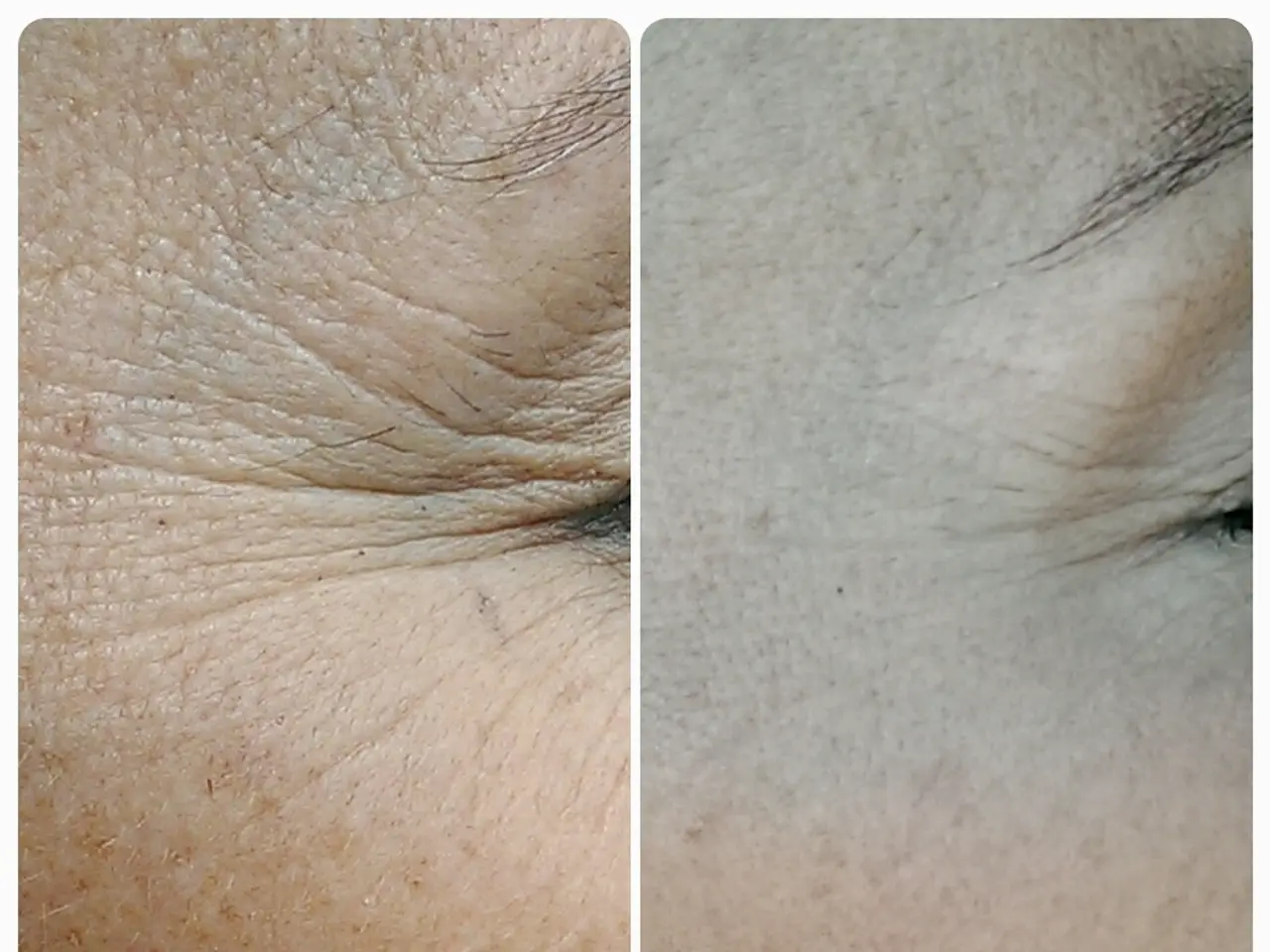Skincare Peptides: Are They Effective Enough to Justify the Cost?
In the quest for a cost-effective yet effective skincare routine, dermatologists often recommend considering peptides as a key ingredient. These short chains of amino acids, the building blocks of proteins, offer multiple benefits that can help improve skin texture, firmness, hydration, collagen production, and skin barrier repair.
Peptides work by stimulating collagen synthesis, repairing the skin barrier, and possessing antioxidant and antimicrobial properties. They can also help undo the effects of aging skin by dampening down inflammation, a process that, when chronic, can damage skin tissue and lead to visible signs of aging such as wrinkles, discoloration, crepey skin, dryness, and dullness.
Compared to budget-friendly anti-inflammatory ingredients like hyaluronic acid and retinoids, peptides provide a more multifunctional approach. While hyaluronic acid primarily functions as a humectant, providing deep hydration and plumping the skin by retaining moisture, peptides directly stimulate collagen and reduce inflammation.
Peptides and hyaluronic acid can be layered for enhanced hydration and skin repair, making them complementary rather than alternatives. On the other hand, retinoids, powerful anti-aging ingredients that accelerate cell turnover and increase collagen, can potentially cause irritation and inflammation, especially for sensitive skin. However, peptides support collagen production and help maintain the skin's moisture barrier, often reducing the risk of irritation when used alongside retinoids.
Clinical studies have shown that peptides can significantly reduce wrinkle depth and surface area, improve skin elasticity, and accelerate healing. Products containing copper peptides, in particular, have received specific attention for their proven anti-aging effects.
Here's a summary table to help compare the features of peptides, hyaluronic acid, and retinoids:
| Feature | Peptides | Hyaluronic Acid | Retinoids | |-----------------------------|--------------------------------------|-------------------------------|------------------------------------| | Primary function | Stimulate collagen, repair barrier, reduce inflammation, antioxidant | Hydration, moisture retention | Increase cell turnover, collagen synthesis | | Anti-inflammatory | Yes | Mild (mostly indirect via hydration) | Can cause irritation in some cases | | Effect on skin texture/firmness | Improves firmness and texture | Plumps skin by hydration | Improves texture by promoting renewal | | Suitability for sensitive skin | Generally well tolerated, barrier supportive | Very well tolerated, hydrating | Can irritate sensitive skin | | Use with other ingredients | Complements hyaluronic acid and retinoids | Works well with peptides | Often combined with peptides to reduce irritation |
In conclusion, peptides offer a multifaceted benefit beyond simple hydration or exfoliation by improving skin health at a cellular level, supporting anti-aging, and reducing inflammation with fewer sensitivity concerns compared to retinoids. When comparing to budget-friendly options, peptides may be somewhat more expensive but provide broader skin benefits and work well synergistically with hyaluronic acid and retinoids for enhanced outcomes.
Remember, the basics of skincare—cleansing, moisturizing, and reducing sun exposure—remain the foundation of any effective routine. By understanding the role of peptides and incorporating them into your regimen, you can take a significant step towards healthier, more youthful-looking skin.
References: 1. Peptides in Cosmetics: An Overview 2. Copper Peptides in Dermatology 3. Peptides in Skin Care: An Overview 4. Hyaluronic Acid: A Key Molecule in Skin Hydration 5. Retinoids and Retinoids-Like Compounds in Dermatology
- Peptides, known for their role in stimulating collagen synthesis, skin barrier repair, and possessing antioxidant properties, are often recommended in skincare routines for improving skin health at a cellular level.
- While hyaluronic acid provides deep hydration and plumps the skin, peptides offer a more multifunctional approach as they directly stimulate collagen and reduce inflammation, making them complementary rather than alternatives in a skincare routine.
- In the realm of fashion-and-beauty and health-and-wellness, incorporating peptides into your skincare regimen can be a significant step towards achieving healthier, more youthful-looking skin.
- With anti-inflammatory and antioxidant properties, peptides support skin-care and lifestyle by reducing inflammation, improving skin texture, and aiding in the production of collagen, making them a valuable component in fitness-and-exercise and a cost-effective yet effective skincare routine.




